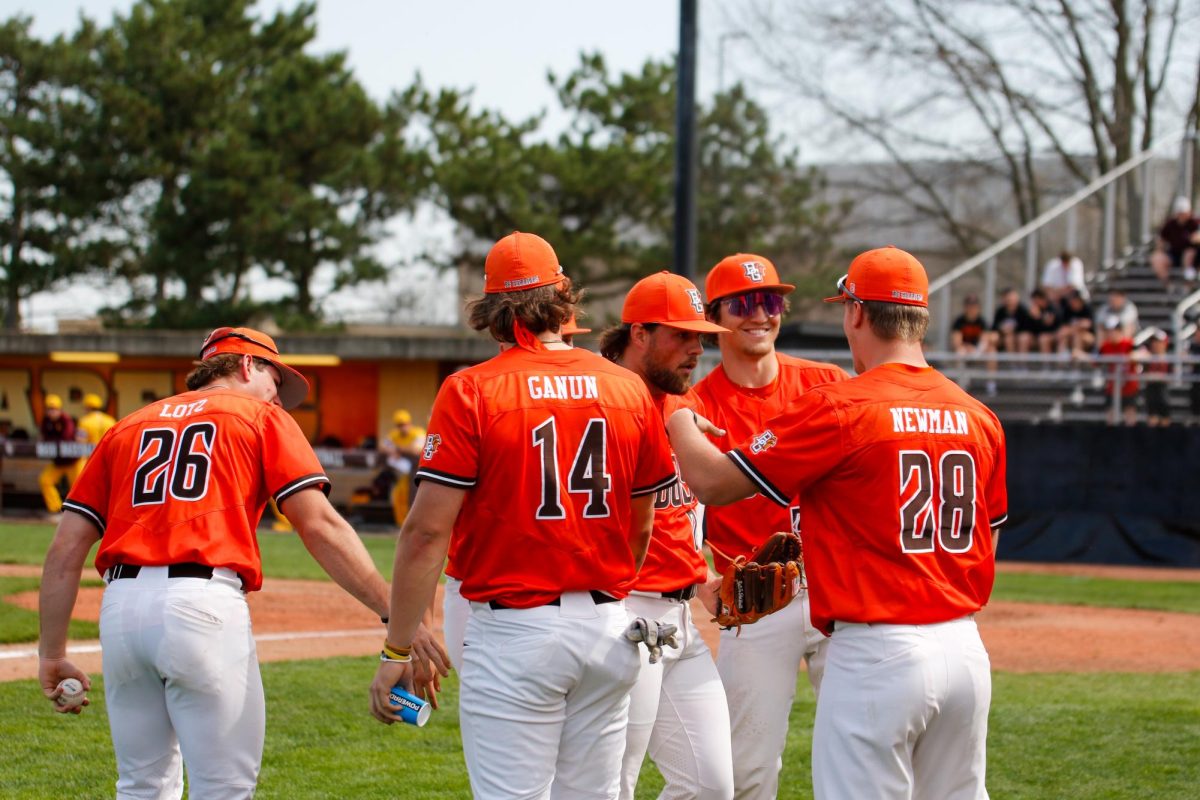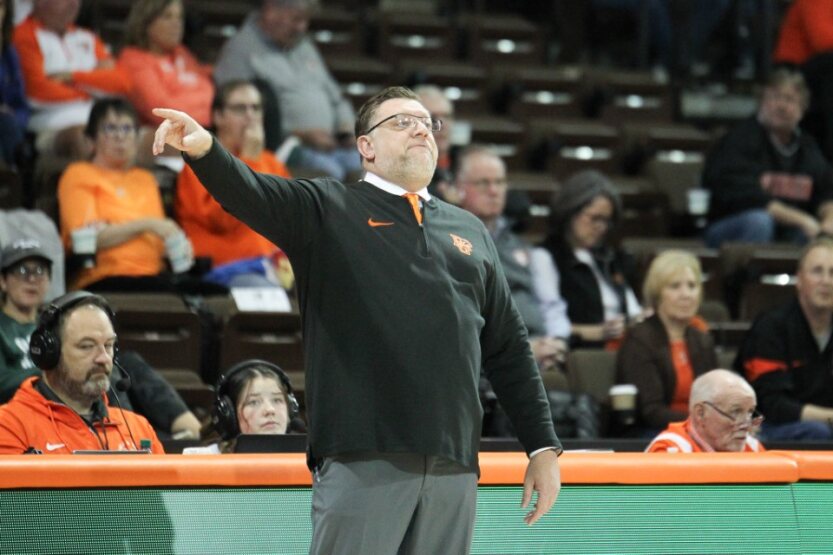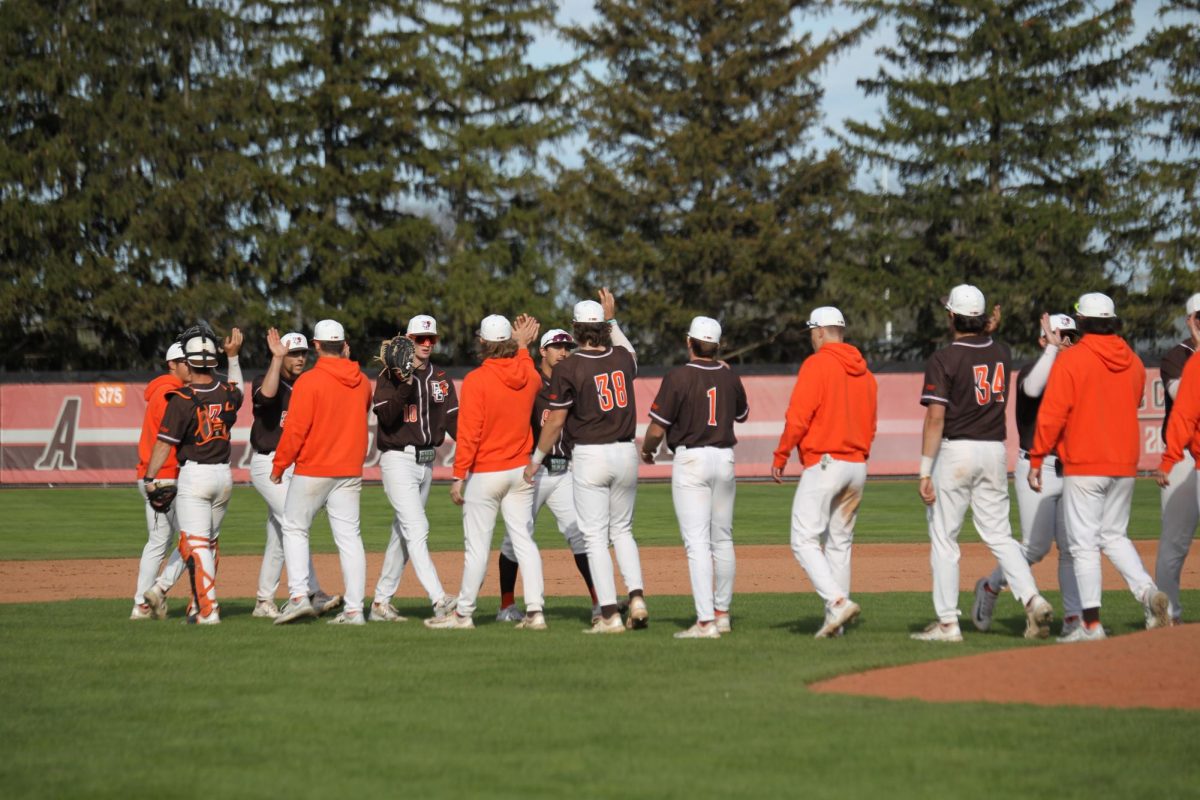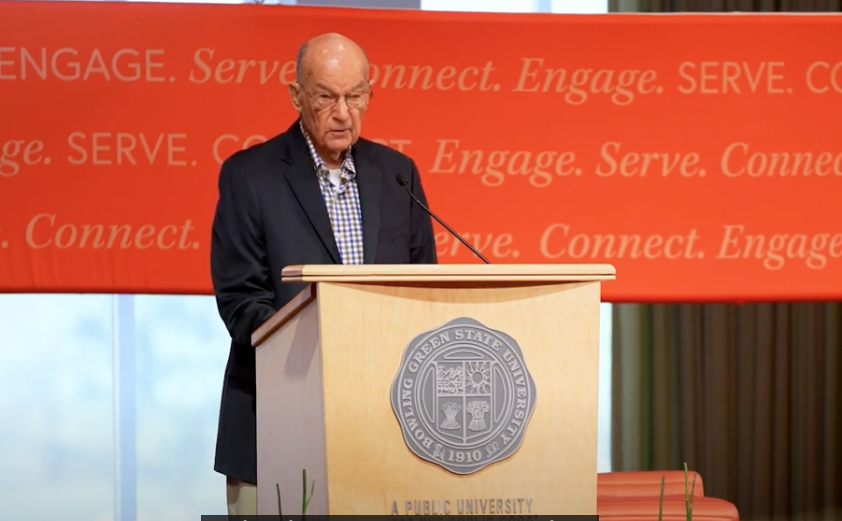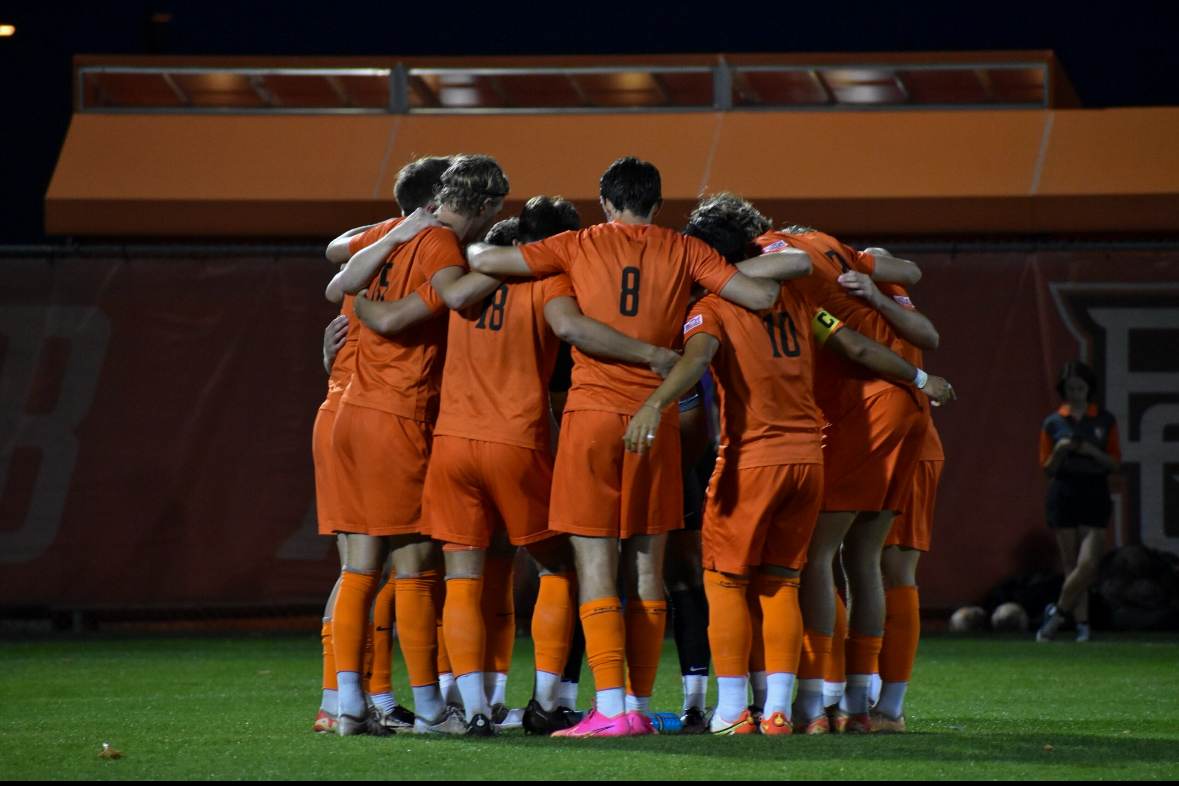In preparation for Earth Day, students in Ian Young’s Environmental Ethics class facilitated a panel entitled “Environmental Justice: Inequity in the Water Crisis.”
The panel involved three questions per panelist consisting of their views on environmental justice, environmental injustices in water and the approaches that can help the injustices concerning water today.
The panelists included Senior Lecturer in the Department of Environment & Sustainability Holly Myers, Assistant Professor in Department of Political Science and the Department of the Environment and Sustainability Andrew Kear, Senior Lecturer in Philosophy Ian Young, Assistant Professor in Nutrition Dr. Mary Rozga, Water Systems Superintendent of Piqua Donald M. Freisthler and City Manager of Piqua Gary A. Huff.
According to the United States Environmental Protection Agency, Environmental Justice is the fair treatment and involvement of all people regardless of race, color, national origin or income, with regards to the development, implementation, and enforcement of environmental laws, regulations and policies. Environmental justice aims to distribute equity among the effects of environmental factors on the human experience. The panel focused on the inequity in water crisis.
The Genesis of the Environmental Justice is the Social Justice Movement, said Kear. People of color and indigenous peoples are more exposed to the injustices of the water crisis and the environment due to the areas they are living in, he said.
Low-income communities and minority ethnic groups often endure the most severe consequences of environmental poverty and pollution. The panel addresses some of those injustices.
“People who live in rural areas are often neglected,” said Myers. “Because rural areas are less densely populated, they have less political power and are often ignored when a problem presents itself.”
The water crisis within these areas, exposes residents to disease from contaminated water and continues to reduce the availability of clean water in the rural communities.
“We need to make sure that what we produce for the communities are safe and equally distributed,” said Huff. “In order to do that, we need assistance in funding and organizing to improve the water conditions.”
Action has been taken to further improve water conditions. Freisthier teamed up with his local agriculture agent to start the Upper Miami River Watershed Group. This group has helped with conservation and educational efforts in the Upper Miami River area. The group was able to get a 319 Grant to assist with incentives for filter strips.
These filter strips slows the amount of runoff, allowing pollutants that are being transferred by the water to be removed by settling out. The Watershed Group also sponsors an annual River Clean Up Day.
These groups have been able to do what they can concerning the water crisis, but it takes more people and more effort from other communities in order for the water crisis to be handled.
According to Kear, if people start spreading academic theoretical discourse on the water crisis and make it mainstream, people will take more action with the environmental justice movement.
“I would like to see the U.S. incorporate principles of restorative justice into the environmental justice framework,” said Myers. “Communities like Flint, Michigan, should have time to publicly speak to the people they hold responsible for the Flint water crisis and those people should have an opportunity to look the ‘victims’ in the eye and explain their actions.”






